The potential applications for blockchain technology are seemingly endless. From finance to healthcare, this distributed ledger system has the potential to revolutionize nearly every industry. But what about education? While it may seem like an unlikely candidate, blockchain could actually have a major impact on the world of education. From streamlining the admissions process to creating a more secure way to store and share student data, there are a number of ways that blockchain could help improve the education system as we know it.
What is blockchain?
Blockchain is a digital ledger that records transactions in a secure, decentralized way. This means that no central authority can tamper with the data or reverse transactions. The data is also immutable, meaning it cannot be changed once it has been recorded on the blockchain.
What are the benefits of using blockchain in education?
There are many potential benefits of using blockchain technology in education. For example, blockchain could help to improve the security and privacy of student data, as well as make it easier to share resources and information between universities and other educational institutions. Additionally, blockchain could help to create a more transparent and efficient system for tracking academic credentials and accreditation.
Blockchain technology has the potential to revolutionize many different industries, and education is no exception. With its ability to improve security, privacy, and efficiency, blockchain could be a transformative force for good in the world of education.
How can blockchain be used in education?
Blockchain technology has the potential to revolutionize the education sector. By creating a decentralized and secure system for storing data, blockchain can help to improve transparency and accountability in education. For example, blockchain could be used to store student records, transcripts, and other sensitive data. This would allow authorized parties to access this data securely and efficiently.
In addition, blockchain could also be used to create digital credentials that are tamper-proof and easily verifiable. This would help to ensure that students receive the credit they deserve for their work. Ultimately, blockchain has the potential to improve access to education, increase transparency and accountability, and safeguard the integrity of academic credentials.
Take away
There is no doubt that blockchain has the potential to revolutionize education. By using blockchain, educational institutions can verify the authenticity of student credentials, track academic progress, and ensure that transcripts and other important data are securely stored. In addition, blockchain can help reduce the costs associated with traditional methods of Education administration. Given all of these advantages, it is clear that blockchain has the potential to transform education as we know it.

